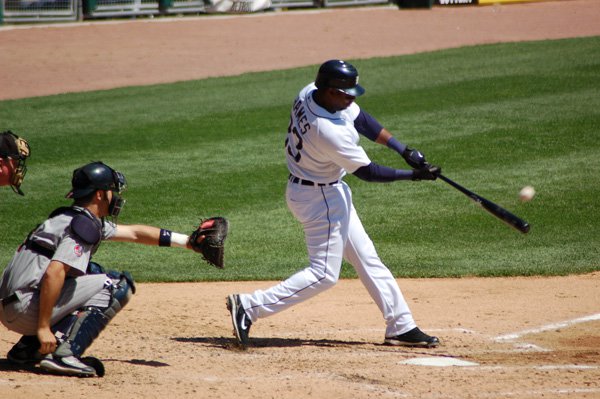baserunner/catcher collision
Question
My son, age 11, is a catcher for his 6-8 grade baseball team. In his last game, his foot was on the plate, arm extended to make a catch when the runner advancing from 3rd base lowered his shoulder and collided with him when crossing home plate. The hit was clearly intentional and knocked the catcher off of his feet and knocked his helmet off. I am an assistant coach and I protested to the umpire that the runner should be called out because #1, he did not attempt to slide or avoid contact on a close play at the plate and/or #2, should be called out for interfering with a fielder attempting to make a catch. The umpire said the runner was safe and committed no foul because the catcher had his foot on the plate. Who is right?
thank you
Answer
Dan,
This is an umpire's judgement call. There are two rules in the major league rulebook that apply. The first is for obstruction:
2.0 OBSTRUCTION is the act of a fielder who, while not in possession of the ball and not in the act of fielding the ball, impedes the progress of any runner.
Rule 2.00 (Obstruction) Comment: If a fielder is about to receive a thrown ball and if the ball is in flight directly toward and near enough to the fielder so he must occupy his position to receive the ball he may be considered 搃n the act of fielding a ball.?It is entirely up to the judgment of the umpire as to whether a fielder is in the act of fielding a ball. After a fielder has made an attempt to field a ball and missed, he can no longer be in the 揳ct of fielding?the ball. For example: If an infielder dives at a ground ball and the ball passes him and he continues to lie on the ground and delays the progress of the runner, he very likely has obstructed the runner.
The second is for interference on the runner:
7.08 (b) Any runner is out when he intentionally interferes with a thrown ball; or hinders a fielder attempting to make a play on a batted ball;
Rule 7.08(b) Comment: A runner who is adjudged to have hindered a fielder who is attempting to make a play on a batted ball is out whether it was intentional or not.
If, however, the runner has contact with a legally occupied base when he hinders the fielder, he shall not be called out unless, in the umpire抯 judgment, such hindrance, whether it occurs on fair or foul territory, is intentional. If the umpire declares the hindrance intentional, the following penalty shall apply: With less than two out, the umpire shall declare both the runner and batter out. With two out, the umpire shall declare the batter out.
Based on your description, I would agree with you. The call is interference and the runner and the batter should both be called out because it was intentional. Secondly, many lower level leagues have specific rules about players intiating contact - not sure if your's does, but that would overrule the book.
The umpire must have believed that the ball was not close enough to the fielder (your son) for him to be considered 'in the act of fielding' therefore ruled he obstructed the runner (or basically gave a no call since there is no penalty in the situation you described (the runner already scored).
Without witnessing the play, I can't give an unbiased view, but at these levels of play, I would almost always go against the player who initiated contact - particularly if it was intentional.
I'm sure that you also know, but I want to emphasize, if a catcher is in the baseline waiting for the ball, he is clearly obstructing the runner and in this instance, the runner could stop and stand there and I would call him safe.
Hope this helps!
Brian
Foul fly rule - outfield foul ball popfly rule?
Check swings


